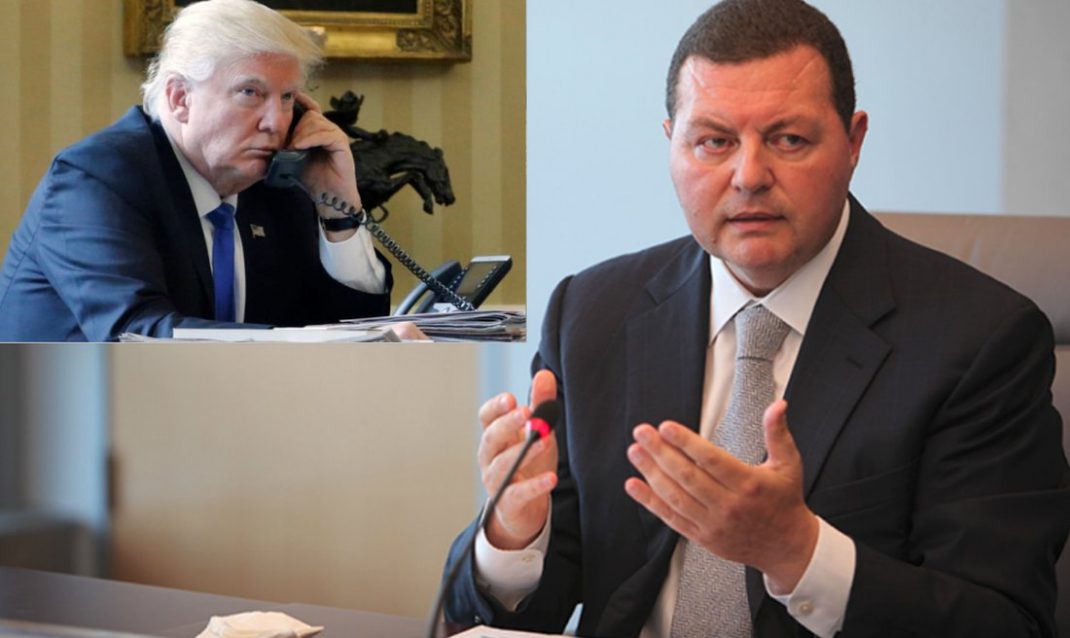 NPR’s Lulu Garcia Navarro talks with analyst Karim Mezran of the Atlantic Council about the developing situation in Libya.
NPR’s Lulu Garcia Navarro talks with analyst Karim Mezran of the Atlantic Council about the developing situation in Libya.
LULU GARCIA-NAVARRO, HOST:
In Libya, Field Marshal Khalifa Haftar is continuing his march towards Tripoli, where the internationally recognized national government sits.
Currently, his troops are stalled outside the city. But the general got a boost recently when President Trump gave him a call. According to some news reports, the president offered his support during the conversation.
So does Haftar have a green light from Washington? And what might this portend for Libya – a country that has not seen stability since the overthrow of Moammar Gadhafi in 2011?
Joining us on the line to discuss this is Karim Mezran, a resident senior fellow at the Atlantic Council.
Welcome to the program.
KARIM MEZRAN: Thank you very much for inviting me.
GARCIA-NAVARRO: There is an internationally recognized government in Tripoli. It has the support of the United Nations and others. Is the United States now giving up on it and shifting its support to Haftar?
MEZRAN: The appearance of this telephone call that President Trump made to General Haftar has led to think that, yes, there is going to be a change of loyalty from the American president. I’m still not that convinced.
I don’t think that the United States can side with the party that has attacked the city. Today the secretary-general of the United Nations was there. See; the parties was very clear with Pompeo this stay when he pointed the finger directly to Haftar as an aggressor and told him that he has to go back.
GARCIA-NAVARRO: Do you think it was a mistake for the president to reach out to General Haftar?
MEZRAN: Of course. Who is General Haftar for the president of the United States to talk to him? He is the head of a militia that is rampaging to launch an attack against the capital, against civilians. So why did he have to make a phone call to him unless it is to tell him, withdraw and then we talk?
The problem is now – this green light given by Trump can be interpreted by the States as, OK, now we can do whatever we want. And in fact, you have seen drones coming in at night, bombings and so on, those types of things as a result.
GARCIA-NAVARRO: Do you think that now the conflict will become more protracted?
MEZRAN: Yeah. I mean, he might be able to hold his position in advance. I think we are going to face weeks of small movements ahead and small movements behind until, probably, some militias in Tripoli, they will defect or will decide it’s too much, and then maybe Haftar can win or the other way around. Troops of Haftar – they are too tired and – to the pressures of fighting in the West, so they want to go back home.
GARCIA-NAVARRO: What supporters of Haftar say is that he has managed to unify a large portion of the country that has been in disarray since the fall of Gadhafi, that the central government in Tripoli that is supported by the United Nations is weak. It is also supported by militias – and that they need someone like Haftar to come and put the country back on track. What is your response to that?
MEZRAN: You cannot rely on a military man to exterminate a military regime. I’m not sure that Haftar will be able to stabilize Libya, even if he takes power. He’s a very divisive character. And there’s a lot of people that really don’t like him – really a lot. He will not be able to unify anything.
GARCIA-NAVARRO: How concerned are you about the repercussions of this? Of course, for Europe, it’s incredibly important because Libya has become a place where many migrants from Africa travel through to go to Europe. And, of course, there is lawlessness and weapons trafficking and other things. So how big a concern is this, do you think, for the wider region?
MEZRAN: It should be a very big concern. Now we are – after these attacks, we are back 10 years. We are back to – especially with the militia will be – if they win, I guess Haftar will be the dominant powers in Tripoli, so there will be no discussion to get rid of them.
If they lose, Haftar will take the city, and there will be a massacre. And it will be – so I think the Europeans better be very concerned.
GARCIA-NAVARRO: Karim Mezran of the Atlantic Council, thank you very much.
MEZRAN: Thank you very much for inviting me.
___________




